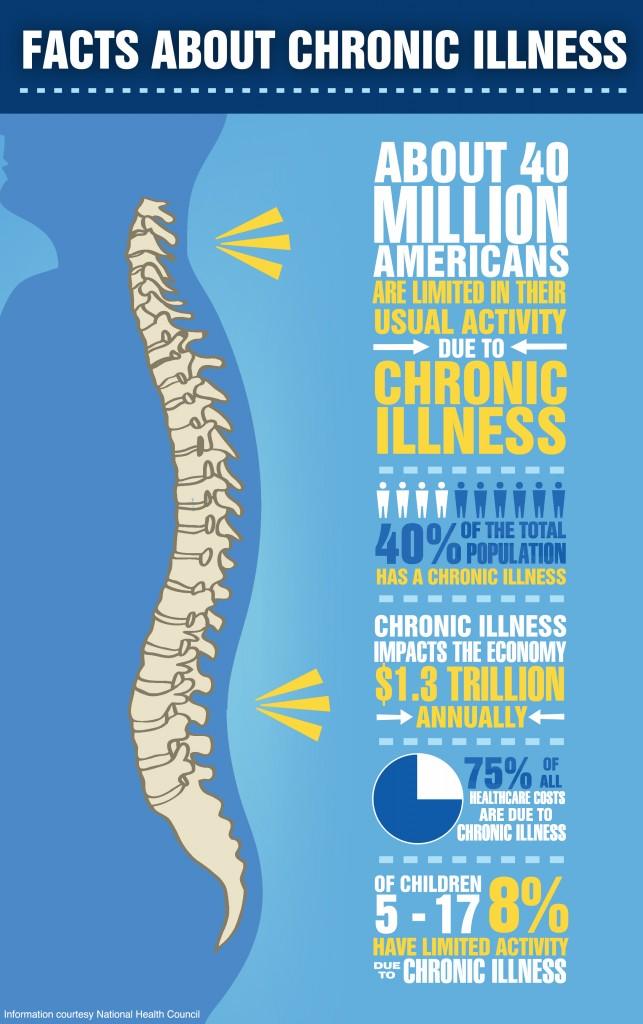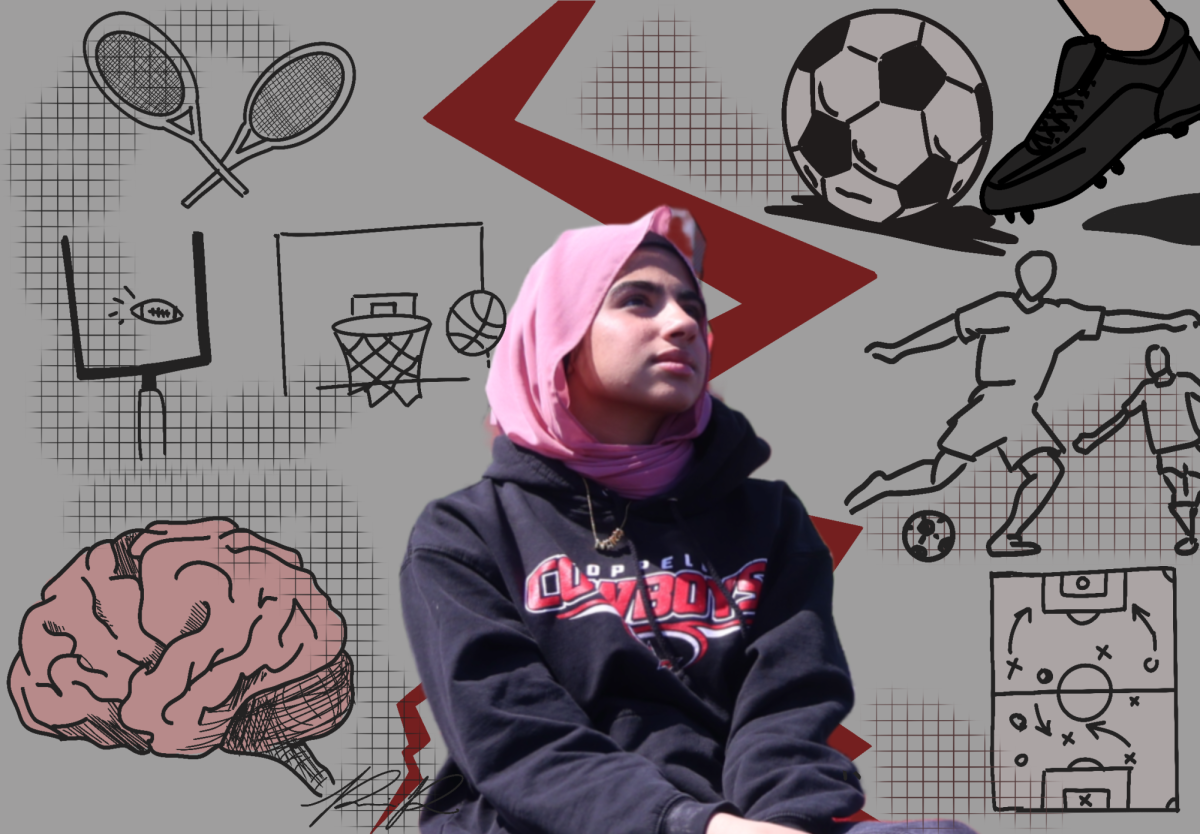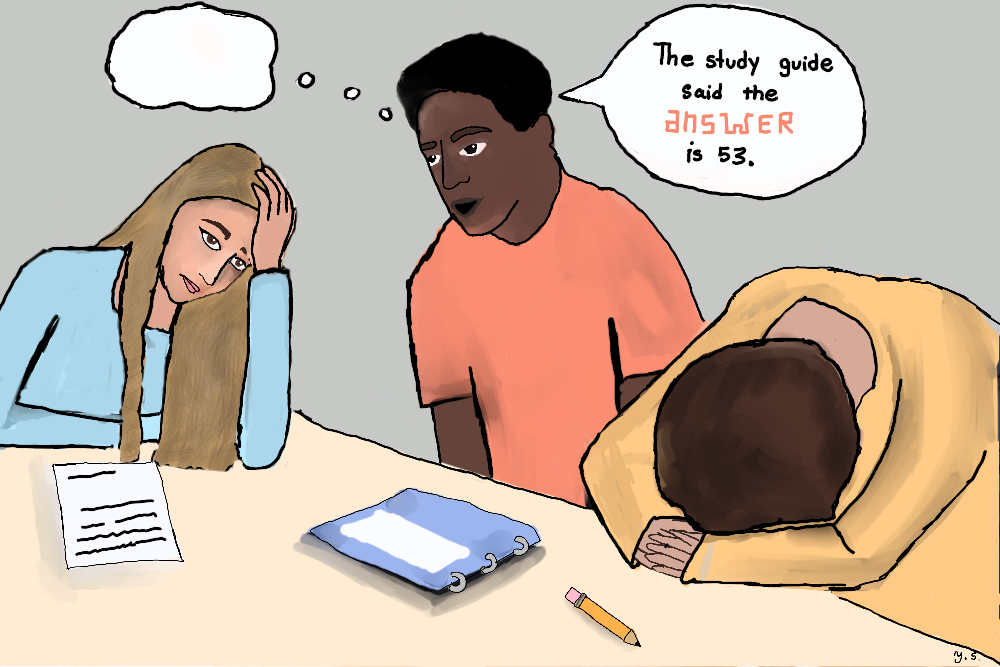By Kara Hallam
enterprise editor
@KaraHallam
“So Kara, when’s the last time you had a migraine?” My physical therapist asks.
As I continued my push-ups, I slowly thought about the answer, unable to come up with what to say. There never was a last time because I always had headaches. I had the chronic migraines for the past six years.

The National Health Council defines chronic illness as a disease which lasts three months or longer. Forty percent of the American population is impacted by chronic illness and 75 percent of health care costs go towards the care of chronic disease. Even though I am young, I know what it is is like to be one of those 133 million Americans affected.
As a kid I was always sick. I was not spared from any cold or virus going around school. I started getting tested for more serious conditions around the age of 10. My doctor would run all sorts of tests and every year would say the same exact thing when the results came back.
“If only everyone could be as healthy as you; I wish the world could have your blood,” my doctor would say.
Then the migraines began. I was in sixth grade when they started. Migraines were common in my family and since I had just started developing it was assumed they came with puberty. I was hospitalized several times and MRIs helped back the theory that my problems were all hormonal.
However, despite the variety of medications I was put on, none of them seemed to help.
My blood vessels would tighten all around my head, or at least I think it was my blood vessels. There is a weight all around my head that hurts at varying degrees. It is a physical impairment that I just know should not be there, but in time I have grown accustomed to them coexisting with me.
My migraines took a toll on me. I am now clumsy, I am incredibly tired all the time and I am reserved, lulled into an odd calm state. One of my biggest challenges can be getting out of bed and trying not to get into it before 8 p.m. It controls my life that much.
My problems started to show on the outside as well. Teachers would ask my parents why I “never smiled” and I was constantly asked by my peers “what’s wrong?” I was labeled as “depressed” or “quiet”. All the while, I had no idea my diminishing appearance was affecting what people thought of me.
I would be sitting in class perfectly content, and then suddenly I would be pulled out of class by teachers who wanted to help me through non-existent emotional crises. It made me incredibly insecure to think that even when I was completely happy, somehow I gave off an off-putting appearance because of the sickness that weighed me down.
My migraines could isolate me into my own little world, one where I was unaware my face had been sketched into a frown despite what I was feeling. My body was used to pushing and fighting through the day so you could see how worn out I was, but no one knew why.
“Maybe I actually am depressed?” I began to think at the end of my junior year. No medication worked on me and doctors had yet to find a solution. Maybe this was sign that my problems were not just physical but emotional as well. Why else would a 17-year-old girl want to give up so badly?
I asked my parents to be taken to the doctor to be checked out again, expecting for nothing to be found wrong or prepared to face the possibility of depression.
In July, I was checked by a different doctor who added a new test to the mix, an X-Ray. The results were scary. I found myself staring at a shot of my curved spine; I was diagnosed with scoliosis.
I was prescribed physical therapy- but it did not end there. In less than five minutes of my first appointment, my physical therapist had diagnosed me as a chiropractor’s worst nightmare: my Atlas bone, a bone in my neck, was not aligned properly. It had affected the rest of my body including my spine, my immune system and my migraines. Apparently it was displaced at birth.
I was completely unaware of my upper cervical problems until my physical therapy. I had always slouched and my head tilted to the right a little but I did not realize how bad things really were until I finally started shaping the muscles by the bone at physical therapy. It turned out my body was so out of whack that when I lay down I fall onto the surface crooked, completely unaware my body is anything but straight because of the curve in my spine.
Physical therapy would strengthen the muscles around the bone but I also needed to undergo chiropractic treatment to realign the bone over the course of a year. My physical therapy has started to help and as for my upper cervical treatment, I will have to wait a year to see if this mystery is finally resolved.
I have hope, though, that my posture could be the root of all my problems. After weeks of physical therapy, I felt four straight days of relief in my migraines just last week. It was the strangest and most unfamiliar feeling I had felt in ages.
Chronic illness can be an unmanageable struggle but you have to keep fighting to live and to find a solution.
Friends, family or anyone indirectly connected to chronic illness, I ask that you treat your child or friend with understanding of his/her illness. Do not be offended if your friend does not want to go out because they are sick.
Parents, be frank with your child about his or her behavior if they seem a little off but remain neutral and non-intimidating. Do not get frustrated or overwhelm your child with questions. If it seems like they are showing signs of a medical issue contact a doctor, who can give you the best answers.
Lastly, teachers, if you do suspect something is wrong with one of your students ask completely neutrally if something is wrong with them. Do not sound overly concerned because that can overwhelm a student. Let your student know you are worried and that if anything is wrong they can tell you and if they say they are fine leave it at that.
I learned to never root my motivation in being “normal” but to make myself physically better. You have to keep going for yourself and for your health but let yourself rest when you do find it has gotten to be too much. You can be open about your illness, but it never has to be an excuse for why you cannot meet someone elses’ social standards.
Lastly, never stop searching for answers. If something feels wrong despite how many times you might be told otherwise, keep looking. Find new doctors, go to specialists and keep an open mind.
As for me, I will not stop until I am better. One day the pain will be gone, the pressure will lift and I will finally be free, and a world of possibilities will be open to me.








